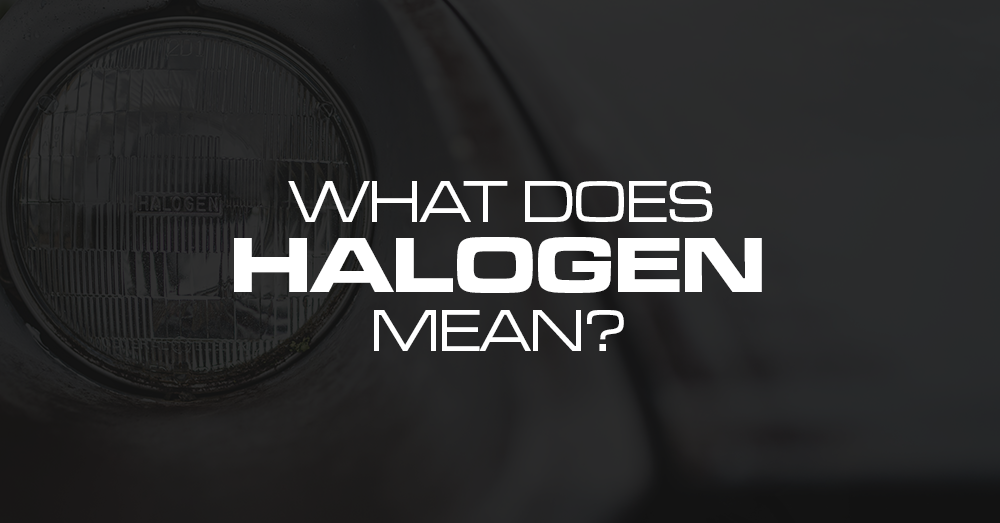Unless you work in a lab, you probably don’t spend too much time thinking about halogens. However, halogen lights are a completely different story. These popular lights have been in use in the world around you for quite a while, and how they operate may surprise you.
In this article, we will explain what halogen means–and what it means for your vehicle’s headlights and warning lights.
A Quick Breakdown on Halogen Lights
These critical pieces of information can help you better understand halogen lights and what they do for your vehicle.
What is Halogen?
The term ‘halogen’ is a scientific classification used to outline a group of elements that exist on the periodic table of elements. There are five elements in total that apply to this category and are known for their remarkable ability to mix with hydrogen to create noticeably strong acidic compounds. These compounds ultimately make salts.
Of course, this is not what most people think of when referring to halogen in everyday contexts!
What Does Halogen Actually Mean?
The most common reference to halogen that you will likely encounter is specific to lights and heating. In this context, ‘halogen’ is often paired with ‘lights’ to create halogen lights. This popular type of lighting can add a stunning, useful, and luxurious feel to vehicles.
Halogen lights have this name because they rely on halogens and some type of inert gas. The type of gas will vary depending on the brand. However, nitrogen, xenon, argon, and krypton are all commonly used options that create the desired effect.
The primary halogen base for these lights is iodine, which is one of the five halogen elements. However, there is generally another type of halogen that is also included to create these lights as we know them.
The four other halogen options are astatine, bromine, chlorine, and fluorine. When you see them on the road, halogen lights are most commonly made with bromine and iodine. These two elements are combined with the vapor and a filament, often made from tungsten, to create a light.
Halogen Lights Compared to LED Lights
Although halogen lights have been popular throughout the years, they have one primary competitor–LED lights. While both of these lighting options can provide a nice glow, they are made differently and can offer unique appearances on the road at night.
LED lights are preferred by many because they are much brighter than their halogen counterparts. If you’re looking for bright lights, you will likely prefer LED lighting–especially if you want a brighter color. In addition to being less bright, halogen lights are also not the vibrant white color you probably want to see. Instead, they tend to be more yellow.
Brightness is not the only area where halogen lights fall behind LED lights with car owners. Energy consumption is also a big consideration. LED lights are brighter and require much less energy, making them less taxing on your vehicle with a better outcome too.
When it comes to longevity, the delicate design of halogen lights can also impact your decision when deciding between these lights. LED lights are easily made into different styles and are generally considered to be more durable. This is why LED is a more popular choice for custom vehicle lights, emergency vehicle lights, and warning lights too.
Find Incredible Vehicle Lights at Ultra Bright Lightz!
Halogen lights have been popular for quite some time, but LED lights are even more favored. If you’re looking to bring that bold and bright LED touch to your vehicle lights, warning lights, or emergency vehicle lights–we’ve got you covered!
At Ultra Bright Lightz, we specialize in making long-lasting LED lights that look great and help keep your vehicle visible at all time!


